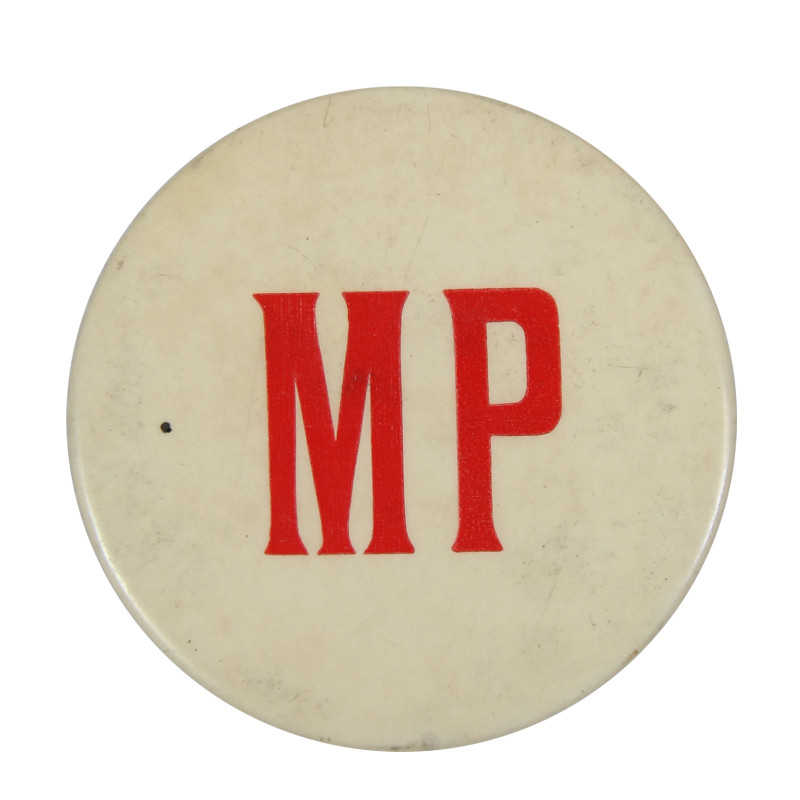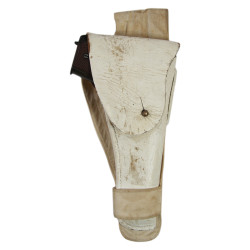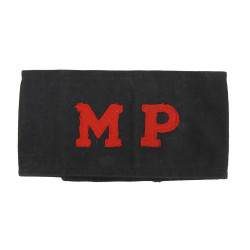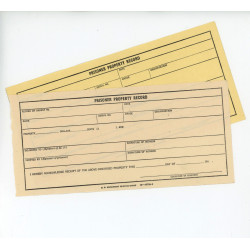




Badge, Pin, MP, Military Police, White
Genuine WWII US pin badge, adorned with initials MP (Military Police).
This rare and historically significant badge was referred by members of the 2nd Ranger Battalion, for duty as Military Police aboard the RMS Queen Elizabeth during their transatlantic deployment in November 1943. As detailed in their wartime narrative, a small group of Rangers were unexpectedly assigned MP duties for the duration of the crossing -- an assignment regarded at the time as a 'low form of duty' but one that has become a unique chapter in the unit's combat history. 'We were given badges, an outward show of authority but the men considered this the lowest form of duty and made no bones about it while saying same.'
Adding a visual layer to the story, one of the original wartime sketches reproduced in the booklet clearly depicts a Ranger MP wearing the badge on his chest -- a rare instance where a piece of insignia is both mentioned and illustrated in a primary source from the unit itself.
This item is exceptionally rare, with only a handful known to exist, as the MP duty was temporary and limited to a very small detachment. Its provenance is supported by original period testimony and appears in the Narrative History of Headquarters Company, 2nd Ranger Bn., published in 1945.
A remarkable addition to any advanced collection of WWII Rangers or Military Police memorabilia.
Good overall condition.
Diameter: 2.5in.










